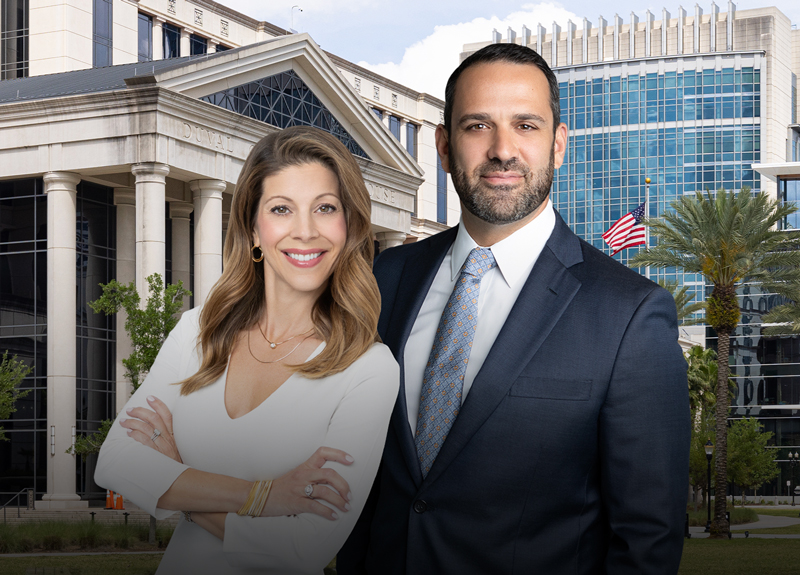Car accident and personal injury victims sustain numerous types of injuries. Personal injuries can include catastrophic injuries that result in permanent impairments and disabilities. An injury to a spouse or family member impacts the entire family.
Family members may be entitled to compensation for their losses because of a loved one’s injury or wrongful death. Spouses often file loss of consortium claims for losses they experience because of an injured spouse.
What Is a Loss of Consortium Claim?
Loss of consortium occurs when a person is deprived of family relations because of injuries sustained by another family member. The family member may sue the party who caused their family member’s injury.
The Florida Supreme Court defined “consortium” as fellowship and companionship between a husband and wife in the 1971 case, Gates v. Foley. A claim for loss of consortium seeks compensation for the deprivation of the benefits of and rights of each spouse to the companionship, company, and aid of the other spouse.
A loss of companionship, aid, or company can include, but is not limited to:
- Affection
- Intimate relations
- Fellowship
- Comfort
- Assistance
- Performing household chores
- Solace
- Moral support
- Caring for children and other family members
- Protection
A claim for loss of consortium belongs to the family member of the injured party. It is separate from a claim to recover damages for injuries and losses sustained by the injured person.
Who Can File a Loss of Consortium Claim in Florida?
State law varies regarding who is entitled to file a claim for loss sustained because of a family member’s injury. Florida common law permits legal spouses and domestic partners to file loss of consortium claims.
Florida Statute §768.0415 gives a child the right to file a claim for liability for injury to a parent. A child can sue an at-fault party for damages caused by the permanent loss of comfort, services, society, and companionship when a parent sustains a permanent total disability.
In some cases, a parent of a minor child or siblings could file a loss of consortium claim. The best way to know if you have a legal right to file a claim is to consult a Jacksonville injury lawyer.
What Do You Need To Prove To Win a Loss of Consortium Claim?
The person filing the loss of consortium claim must prove the legal elements to recover compensation. To hold the at-fault party liable for your damages, you would need to prove:
- You and the injured party were legally married or legal domestic partners as of the date of injury (children must establish the injured party was their parent)
- The at-fault party caused the spouse’s or parent’s injury
- The injuries sustained qualify for a loss of consortium claim
- You sustained a legal or actual loss of consortium because of the at-fault party’s negligence or wrongdoing
Proving a claim can be difficult because there might not be physical evidence to show that you suffered losses because of your loved one’s injuries.
Medical records can help establish the person’s physical injuries. Expert testimony can explain how those physical injuries prevent the person from providing care and participating in the relationship as they did before the injury.
Some injuries cause emotional or cognitive impairments. Medical evidence and expert opinions can also help explain how these injuries could result in a loss of consortium for spouses or children.
How Does the Court Value a Loss of Consortium Claim in Florida?
The compensation for the claim is paid directly to the spouse or child. Loss of consortium is a type of non-economic damages. Therefore, you do not have documentation to prove the value of loss as you do for economic damages.
You must consider factors related to loss of consortium claims to determine the value of damages. Factors to consider include:
- Do physical injuries prevent the person from caring for family members?
- Will a spouse be able to engage in intimate relations?
- Can the family member provide comfort and affection?
- Do the injuries prevent the person from having a child if they want a child?
- Is the person able to communicate and express emotions?
- Can the person assist with household chores and raising children?
- Is the person able to provide beneficial support and guidance?
The more “no” responses to these questions and similar questions, the more impact your family member’s injuries have on your relationship. The value of a loss of consortium depends on the severity of the impact of the injury on your relationship.
Insurance companies and defense lawyers always try to minimize the impact of injuries on family members. Therefore, you need to provide details and a compelling narrative illustrating how your relationship with your spouse has changed for the worse after the accident or injury.
Contact Us for a Free Consultation With Our Jacksonville Personal Injury Lawyers
Loss of consortium cases can be complicated to win. However, our Jacksonville personal injury attorneys have significant experience handling these types of personal injury claims.
Call us at (904) 396-1100 today or contact us online for your free consultation with one of our Jacksonville personal injury lawyers from Baggett Law Personal Injury Lawyers.

